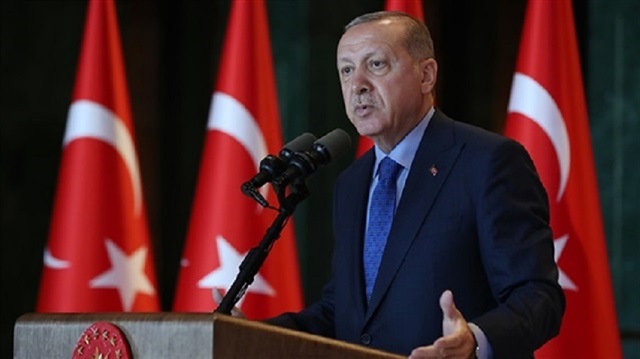
What is wrong with the United States under Trump’s administration? More sanctions on Russia, punitive tariffs on China, intrusive sanctions to be introduced on Iran, even a proposed legislation to sue OPEC for its trade practices under U.S. antitrust laws, and now sanctions on a NATO ally, Turkey.
By the time President Trump’s first term in office comes to an end, he will have singlehandedly antagonized the whole world leaving the United States without any allies or friends. If the European Union (EU) is depicted by Trump as a foe, then NATO, most members also being a part of the EU, is also a foe.
The spat between the United States and Turkey flared over Turkey’s continued detention of an American pastor, Andrew Brunson, who was jailed 21 months ago after a failed coup in Turkey two years ago.
The Trump administration imposed financial sanctions against two ministers of President Eceep Tayyip Erdogan’s cabinet sending the Turkish Lira plummeting. President Erdogan retaliated with sanctions of his own against his minister’s American counterparts.
A worsening dispute between the United States and Turkey has led to a weakening of the Turkish lira against the U.S. dollar. It also reverberated through the global economy, hastening a broad flight of money from emerging markets and sowing instability throughout the Middle East as relations between the two NATO allies neared a breaking point.
President Erdoğan says the coup was orchestrated from the United States by Fetullah Gülen, the ringleader of the Fetullah Terror Organization (FETÖ). Turkish authorities have demanded that he be extradited, but American officials have refused and the detained American pastor and some other Americans are widely seen as bargaining chips.
Seeming to sense Turkish vulnerability, President Trump piled on pressure by announcing additional economic sanctions against Turkey, doubling tariffs on imported Turkish steel to 50 percent and on aluminum to 20 percent. The move effectively priced Turkish steel out of the American market which accounts for 13 percent of Turkey’s steel exports.
President Erdoğan has shown no sign of backing down. He sounded defiant in speeches to his supporters, vowing not to bow down to Western pressure. He said, “Those who believe they can make us kneel by economic manipulation have never understood this nation. They can’t use threatening language, blackmailing language against this nation. Especially bullying will not cut it with our nation.”
The Turkish leader seemed determined to tough it out. He called on Turks to sell their gold and dollars and buy liras to bolster the Turkish currency.
President Erdoğan has served notice to the United States that unless it starts respecting Turkey’s sovereignty and proves that it understands Turkey’s security concerns, his country’s partnership with the United States could be in jeopardy.
Turkey has established time and again that it will take care of its own interests if the United States refuses to listen. In 1974, the Turkish government stepped in to defend the Turkish Cypriots against attacks by the Greek Cypriots despite Washington’s objections. More recently, Washington’s failure to grasp the seriousness of Turkish concerns regarding national security threats emanating from Northern Syria resulted in two military incursions that cut off the so-called “Islamic State’s” access to NATO’s borders and removed Y.P.G. terrorists from the city of Afrin. Turkey will continue to take necessary steps to protect its national interests.
The escalating dispute between Turkey and the U.S. has many global geopolitical, strategic and economic implications for U.S. sanctions against Iran, the war in Syria, NATO and closer attachment to the Russian-Chinese strategic partnership.
Turkey is a major regional power on the crossroads between Asia and Europe. It has the world’s 13th largest economy estimated at $2.17 trillion in 2018 based on purchasing power parity (PPP). It is also emerging as the energy hub of the European Union (EU) with the Russian-built Turk Stream gas pipeline which will bring Russian gas supplies to Turkey, and the EU under the Black Sea and the Southern Gas Corridor (SGC) which will bring gas from the Caspian to the EU.
Even before the spat with Washington, Turkey announced that it doesn’t recognize U.S. sanctions against Iran and that it will look after its own interests by continuing to buy Iranian crude oil and gas. Turkey accounts for 7 percent of Iranian oil exports. Furthermore, President Erdoğan announced Turkey’s readiness to conduct trade in national currencies with China, Russia, Iran and Ukraine which account for the largest volume of bilateral trade.
President Erdoğan has often touted his relationship with Russia as a signal that he has an alternative to relations with the West. With his escalating dispute with the U.S., he may be more inclined to attach his country to the powerful Russian-Chinese strategic partnership which is already starting to shape the world’s geopolitics and economy. A case in point is China’s successful launching of its yuan-denominated crude oil futures in Shanghai (petro-yuan) with staunch support from Russia, which is already undermining the U.S. petrodollar in the global oil trade.
Furthermore, President Erdoğan may be persuaded to join the economic association known as BRICS (Brazil, Russia, India, China and South Africa) which is emerging as the most powerful economic bloc in the world.
Last but not least, Turkey could move closer to Russian efforts in ending the war in Syria and a possible rapprochement with Syria.
*Dr Mamdouh G Salameh is an international oil economist. He is one of the world’s leading experts on oil. He is also a visiting professor of Energy Economics at ESCP Europe Business School, London.














